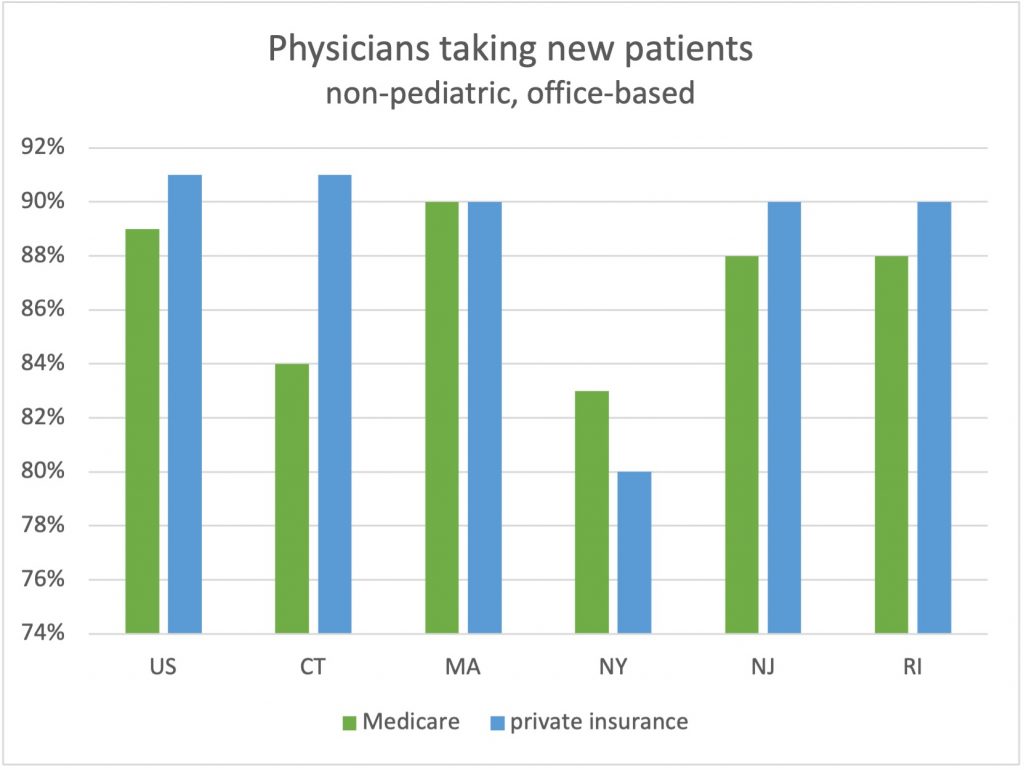Most CT physicians take Medicare patients, but less than US average; implications for payment reform

At 84%, the large majority of physicians in Connecticut take new Medicare patients according to a new analysis by the Kaiser Family Foundation, while 91% take new privately insured patients. The US averages are 89% for Medicare and 91% for privately insured new patients. The analysis was of non-pediatric, office-based physicians in 2015 and 2017. Connecticut physicians are tied for 39th among states in taking new Medicare patients; the US average is five percent higher. Connecticut physicians’ willingness to accept new Medicare patients is also lower than neighboring states.
The gap between accepting new Medicare and new privately insured patients for Connecticut physicians is the third worst in the US – 84% vs. 91% — behind only Alaska and Oregon.
The reason this is important, aside from monitoring access to care for beneficiaries, is that many payment reform models propose using Medicare rates to pay physicians for all patients. Private insurance payment rates average 43% higher than Medicare. Concerns have been raised that Medicare rates are too low to cover costs and could create access problems. However, nationally, access to care for new Medicare and privately insured patients is very close, and those rates have varied little over time.
The analysis found that, nationally, physicians in large groups and younger physicians were more likely to take new Medicare patients. There was little difference within specialties between the rate of physicians taking new Medicare or privately insurance patients. Surgical specialists were the most likely to take both new Medicare and privately insured patients (96% for both). Primary care physicians were less likely to take new patients, but the rates were very close between Medicare and privately insured.
It is unclear if Connecticut physicians’ lower rates of accepting new Medicare patients than privately insured would raise barriers to payment reforms and making healthcare more affordable in our state.

